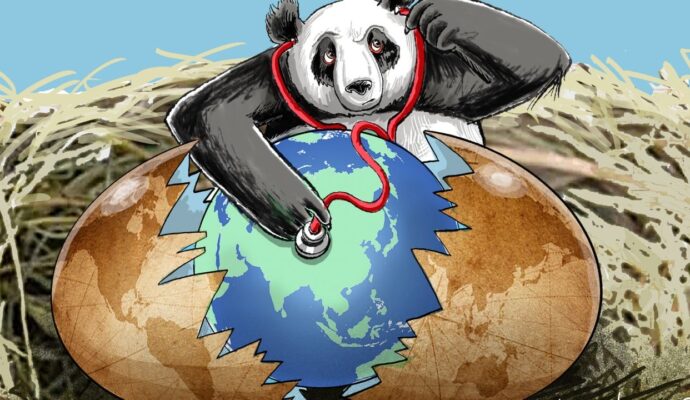Seong-hyon Lee, a senior fellow at George H.W. Bush Foundation for US-China Relations, said by formalising the cooperation between the countries, the Camp David summit marked “a de facto military alliance without explicitly stating so”.
East Asia’s ‘seismic shift’: why China sees the Camp David summit as the start of a de facto military alliance
Beijing recently stepped up pressure on Seoul, publicly criticising the Yoon administration’s pro-US stance, particularly his pursuit of close security alignment with the US and Japan. In June, China’s ambassador to South Korea Xing Haiming was caught in a diplomatic row when he warned that Seoul would “definitely regret it” if it bet against Beijing in the US-China rivalry.
Apart from Yoon’s pivot towards the US, Zhu said China’s Wolf Warrior-diplomacy in dealing with South Korea, especially following Seoul’s deployment of a US missile defence system known as THAAD in 2016, had also had negative impacts on bilateral ties.
“Following Japan’s lead, South Korea has accepted that its security and strategic concerns trump other issues, including business and economic interests,” he said.
Benoit Hardy-Chartrand, an international affairs specialist at Temple University Japan in Tokyo, said Yoon’s election in South Korea was the key factor in bringing the three countries together.
“Without [Yoon’s] willingness to reach out to Japan despite the political risks it entailed, none of this would have been possible,” he said.
“This highlights the potential fragility of the trilateral partnership. While we cannot ignore the geopolitical variables that brought them together, this partnership remains liable to the vagaries of domestic politics in South Korea and, to a lesser extent, Japan.”
He noted that if a candidate from the progressive opposition, which is traditionally more anti-Japanese, won the 2027 presidential election in South Korea, it could “spell serious trouble for trilateral cooperation”.
We cannot understate how significant the Camp David summit was
Hardy-Chartrand added that the other factors behind the summit included North Korea’s repeated missile provocations, Russia’s invasion of Ukraine and a shared perception among regional countries of a growing challenge posed by China.
“We cannot understate how significant the Camp David summit was. Leaders often tend to overhype such diplomatic events in order to score domestic points, but in this case, bringing the three leaders together for the first Japan-South Korea-US stand-alone summit was not only a diplomatic success for Biden, but also a sign of the widening fractures in regional geopolitics,” he said.
Zhiqun Zhu, an international relations professor from Bucknell University in Pennsylvania, said the summit served to underline that the world was being divided into two Cold War-style camps, with the US and its allies on one side, and China, other authoritarian regimes and some developing countries on the other.
“As the Biden administration galvanises support from its allies in Europe and Asia in competing with China, tensions will not only grow between the US and China, but also between China and its Asian neighbours,” he said.
“As a result, East Asia will become more unstable, and the dangers of conflict in the Taiwan Strait and the South China Sea will increase.”
Zhu cautioned against what he called “a misguided belief” among the US and its allies that by strengthening security alliances, China would be deterred on issues such as Taiwan and the South China Sea.
“This miscalculation unfortunately underestimates China’s will and preparedness to defend what it considers ‘core’ national interests,” he said.
In response to the US, he said we could see China consolidate its relationships with Russia and other countries in its own circles, such as the Shanghai Cooperation Organisation and Brics, which held a summit in Johannesburg this week.
However, he said China should take a long view and wait for political changes in the US, South Korea and Japan before taking any action.
“After all, Biden may be out of office after the 2024 election, and approval ratings of both Yoon and Kishida are lacklustre at home. Nevertheless, it is unwise for China to confront the US head-on now, especially when Beijing is facing serious domestic challenges now,” Zhu said.
Lee pointed to a possible weakness of the partnership: the three leaders’ focus primarily on security “at a time when people are more concerned about the economy”.
“If these moves do not yield economic benefits, they risk facing domestic political backlash,” he said, adding that the leaders were trying to advance an economic partnership that complemented their security cooperation.

